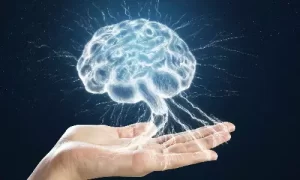
 The Nobel Prize winner for chemistry is of the opinion that the focus of technological developments should primarily be on how to make a positive impact on human life.
The Nobel Prize winner for chemistry is of the opinion that the focus of technological developments should primarily be on how to make a positive impact on human life.
Riding on the back of quantum technologies, Artificial intelligence (AI), cyber security and genetic engineering, healthcare around the world is set for a major transformation, says Dan Shechtman, who won Nobel Prize for chemistry in 2011.
Israel, according to Shechtman, has begun to develop better understanding into the real causes for cancer and other diseases owing to the developments in deciphering the human genome.
“Based on this, the medication will be subscribed to an individual based in his special genomic characteristics,” he says in an interview with Chinese news agency Xinhua. “There will be great hope to have personal medicine,” he adds.
The Nobel Prize winner is of the opinion that the focus of technological developments should primarily be on how to make a positive impact on human life.
“People will live longer because we will understand the source of the disease based on the individual buildup of his or her body and then we will be able to postpone the end of our lives by better medicine, better treatments and other means,” Shechtman says.
According to Shechtman, in the next 5-10 years quantum computing will help advance many aspects of people’s lives, and everything will be done faster and more accurately.
Shechtman, a professor of Materials Science at Israel Institute of Technology, Haifa, Israel, was awarded the Nobel prize for the discovery of quasicrystals, regular patterns at atomic level that never repeat themselves.
Following Shechtman’s discovery, scientists have produced other kinds of quasicrystals in the lab and discovered naturally occurring quasicrystals in mineral samples from a Russian river.
A Swedish company has also found quasicrystals in a certain form of steel, where the crystals reinforce the material like armor. Scientists are currently experimenting with using quasicrystals in different products such as frying pans and diesel engines.






